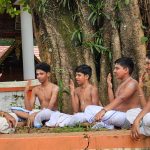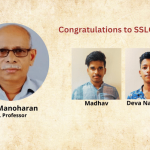Sriraghavapuram Brahmaswam Vedic Education Foundation is a great project. The main project is to nurture an elite group of Brahmins who are proficient in Sanskrit, Vedas, their appendages and strategy – a generation that can illuminate the path of Dharma to the world after 12 years of training in the Gurukul system.
Preservation of the oral tradition of Vedic chanting is something that Namboothiris must focus on. Today, in the Kerala tradition of Vedic recitation, there are less than a hundred people who know how to recite the Vedas completely. Fewer than fifty students are learning to recite in different patasalas.
Those who can recite Rigveda, Yajurveda, and Samaveda have many opportunities for MuraJapa in many temples apart from rituals. But few come forward to teach younger generations. Also, there are fewer and fewer parents who urge their children to take up rigorous Vedic study as a lifelong vow.
Sri Raghavapuram Sabhayogam conducts Vedic Patasalas in Yajurveda and Samaveda. In the traditional Gurukul tradition, it is the practice of staying in one place and learning under a teacher. The daily routine of recitation for 2 hours each in morning and evening along with normal school education. More time can be used for practice on holidays. Thus, after 6 years, the Samhita (the whole Veda text) will be memorized. A few more years to study the Sakha . Along with this, children should be imparted lessons in Sanskrit and Indian heritage.
If the oral recitation style has to last, daily practice is required, it should be recited till the end of one’s life. (You should meditate on it every day.) You should be able to organize your life in such a way to support this lifestyle. Such a person should also have a decent standard of living (means of income). With that objective, Sabhayogam is preparing itself to engage in long-term action plans.
After memorizing the Samhita (after 10th or +2 years) the Sabhayogam is trying to provide opportunities to study Vedic related subjects as higher study at the University level. Besides Veda (Samhitha), Brahmana, Aranyakam and Upanishads, the Vedangas like Shiksha, Kalpa, Vyakarana, Nirukta, Chandas and (Vedic) Jyothish are also taught in some central universities. But not completely. For which we may have to build a university by ourselves. Only then will we get more Vedic scholars in the society. These are the ones who should properly maintain the traditional rituals and conduct deep researches and lectures from the Indian point of view, write articles and books and pour the wealth of ancient wisdom of the Vedas into the present society to meet today’s needs. That too is one of the main objectives of Sabhayogam.
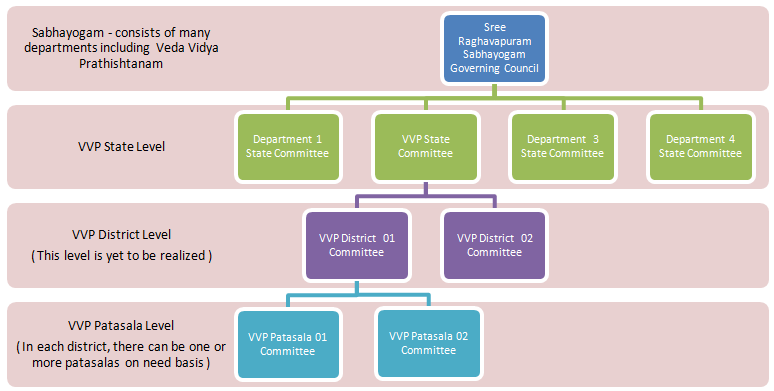 At each level, the Administration, Accounts, PR and IT departments are envisioned.
At each level, the Administration, Accounts, PR and IT departments are envisioned.
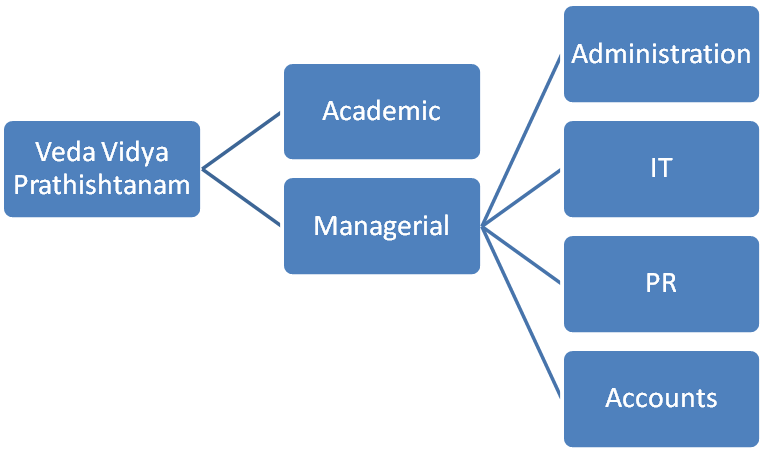 The sections at each level will work in tandem with the same section at the top and bottom of the structure
The sections at each level will work in tandem with the same section at the top and bottom of the structure
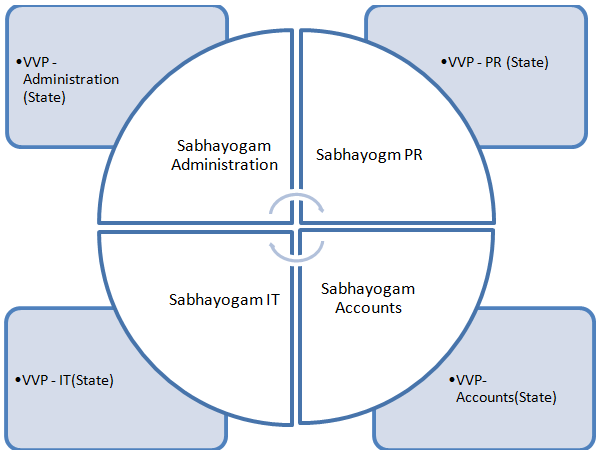
1. Ramapadam Veda Patasala, Cheruthazham, Kannur
2. Naduvil Madam Patasala, Thrichambaram, Kannur
3. Thottam Sama Veda Pata, Kurichithanam, Kottayam
During the 6 days from 30th April 2023 to 5th May 2023 several priests from various parts of India will be visiting the Yagam. Various discourses by prominent seers, Art and Cultural programmes, exhibitions etc. will be held during the Yagam.
https://kaithapramsomayagam2023.org/
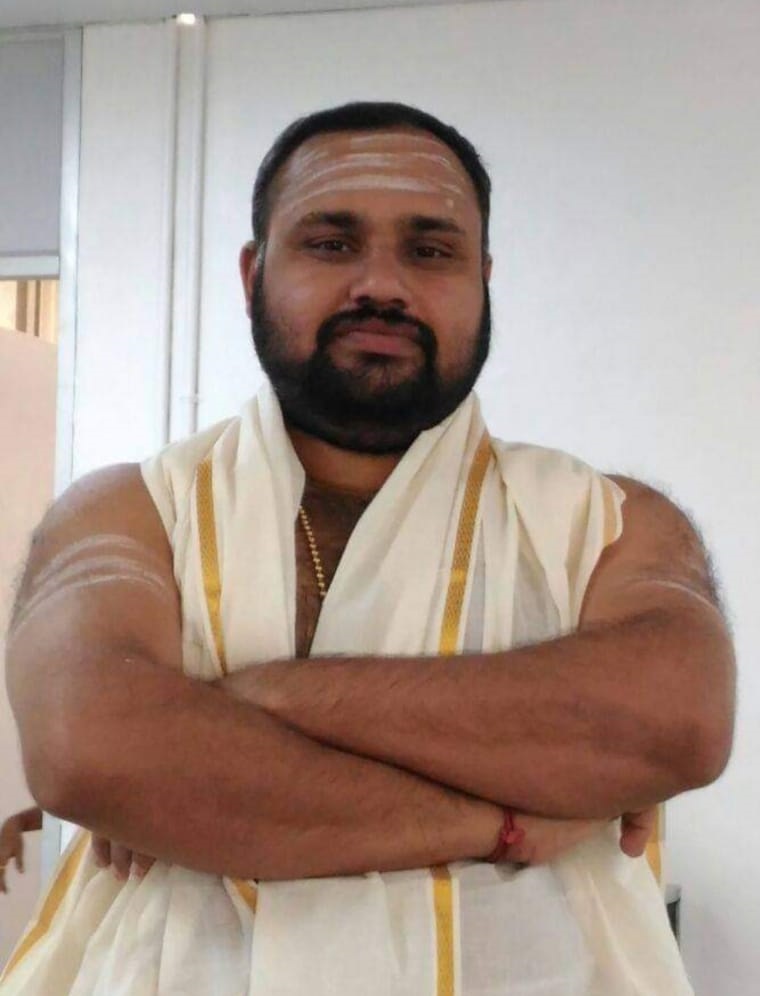
|
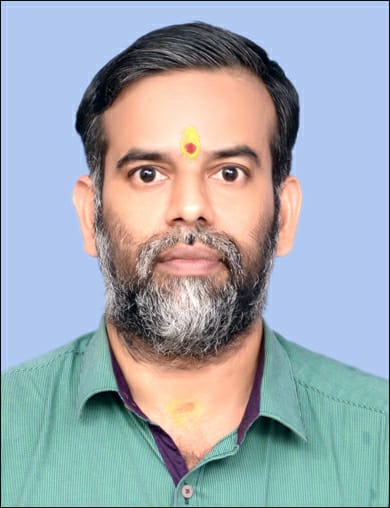
|
Sreekanth Kara Bhattathiri, Kannur (Chairman) |
Dr EN Eswaran, Egda Neelamana, Eranakulam (Director) |
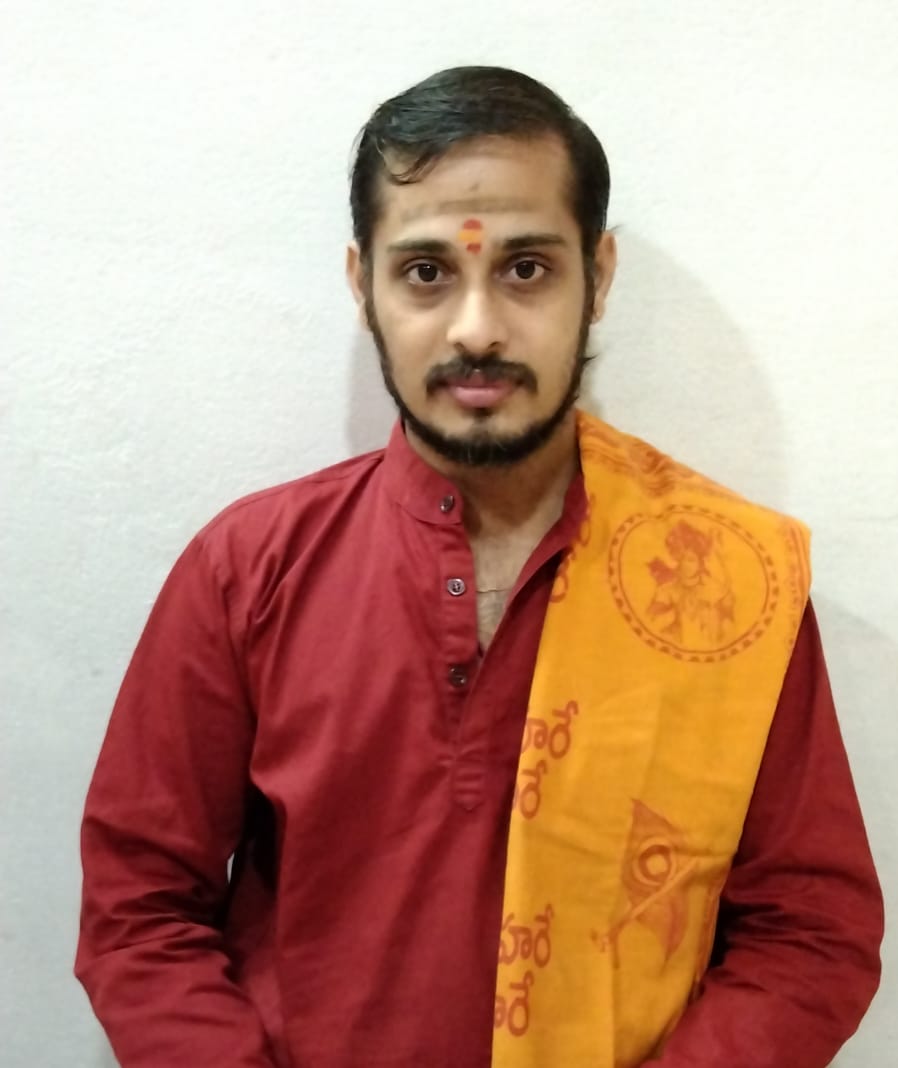
|
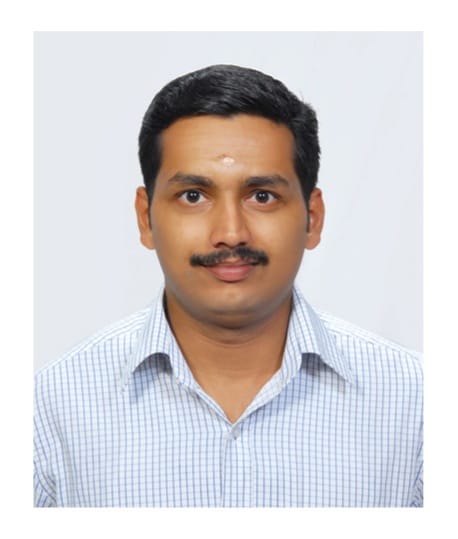
|
Sreehari Sankar Vaikundam Neelamana, Kozhikkode (Administration Officer) |
Vineeth Namboothiri Mangunnam, Alappuzha (PRO) |
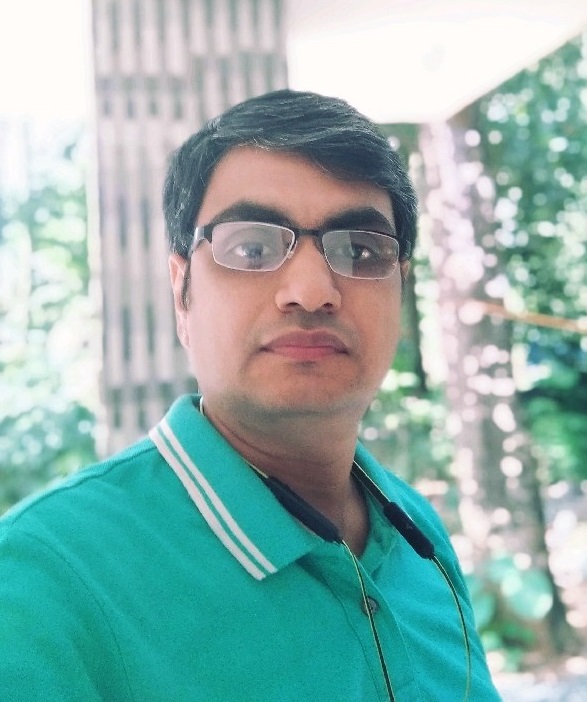
|
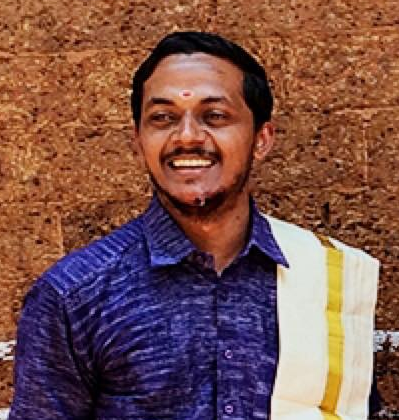
|
Sankar Madhavappalli, Palakkad (Accounts Officer) |
Parameswaran Namboothiri, Makkantheri, Kasaragod (IT Officer) |
- To gain knowledge and expertise in the branch of Yajurveda
- To study and practice Sanskrit
- To obtain basic training in the field of Vedic activities
- To gain a broader understanding of the central pillars of Sanatana Dharma: Dharmashastras, Epics, Puranas and Agamas
- To guide and help higher education and to develop a righteous mind and life
- To promote simple living in harmony with nature
Through continuous effort we can form a better Brahmin community that can illuminate the world with knowledge. With the establishment of similar schools of traditional learning in all the villages, the revival and expansion of the Brahmanical culture and the expansion of the entire Hindu culture was possible with the initiative of the enthusiasts.
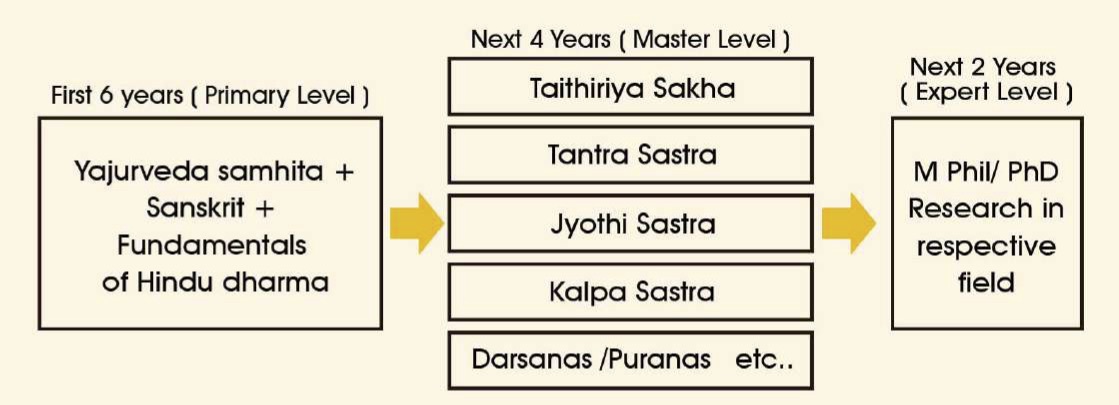
Funds are needed to run schools- monthly Dakshina to the Teachers, reward to the kitchen mothers, tuition and other expenses. Students are not usually charged any fees. Expenses are met by donations from well-wishers, interested in preserving our cultural heritage.
An institution is planned to provide religious and high quality modern education to the students of Vedic school and girls' school. The cost is estimated at Rs 1 crore. Up to 100 students can get residential education here. The interest from the fund will be used for day-to-day expenses.
For All Veda Patasala,
- Total expense for a month = INR. 240,000
- For one student per month = INR. 10,000
- Dakshina for Acharya per month = INR. 100,000
- Monthly Dakshina for cooking moms = INR. 48,000
- Total expense for a day = INR. 8000
- Food for one day (Including all related expense) = Rs. 4000
- One time food + Dakshnia = INR 4000
- One time food = INR 2400
For a Veda Patasala,
- Total expense for a month = INR 60,000
- For one student per month = INR. 10,000
- Dakshina for Acharya per month = INR 25,000
- Monthly Dakshina for cooking moms = INR 12,000
- Total expense for a day = INR 2000
- Food for one day (Including all related expense) = INR 1000
- One time food + Dakshina = INR1000
- One time food = INR 600
You can set a standing order in online bank to pay Rs 100 / Rs 500 / Rs 1000 each month. Or send it as online payment using UPI ID. Easy to do with Google Pay by scanning the image. 2. Get admission to your child in a Veda Patasala preferably soon after Upanayanam.
3. Place a "Veda-Hundi" box in your uraima temple. Creating awareness among devotees importance of Veda Patasala. Use the money received for Patasala and Murajapam (Veda recitation) in the temple. Give alms to those who come for Murajapa without hesitation.
4. Inform Sabhayogam of the desire to start a Vedic Patasala if the temple has facilities / convert old naluketts to be re-used for this purpose.
5. Talk to like-minded about Vedic schools. Encourage them to make sustaining contributions. Companies can help Sabhayogam through CSR funds / advertising etc. Some companies will accept CSR applications through employees. Use such connections to help.
Office Secretary,
Sree Raghavapuram Sabhayogam,
Chettur Bhrahmaswam Nalukettu,
Pazhichiyil, Pilathara (PO),
Kannur Dist. - 670504
Email Address
vedavidyaprathishtanam@gmail.com
Phone Number
+91 7907673984
+91 9447322337
+91 8547410552



